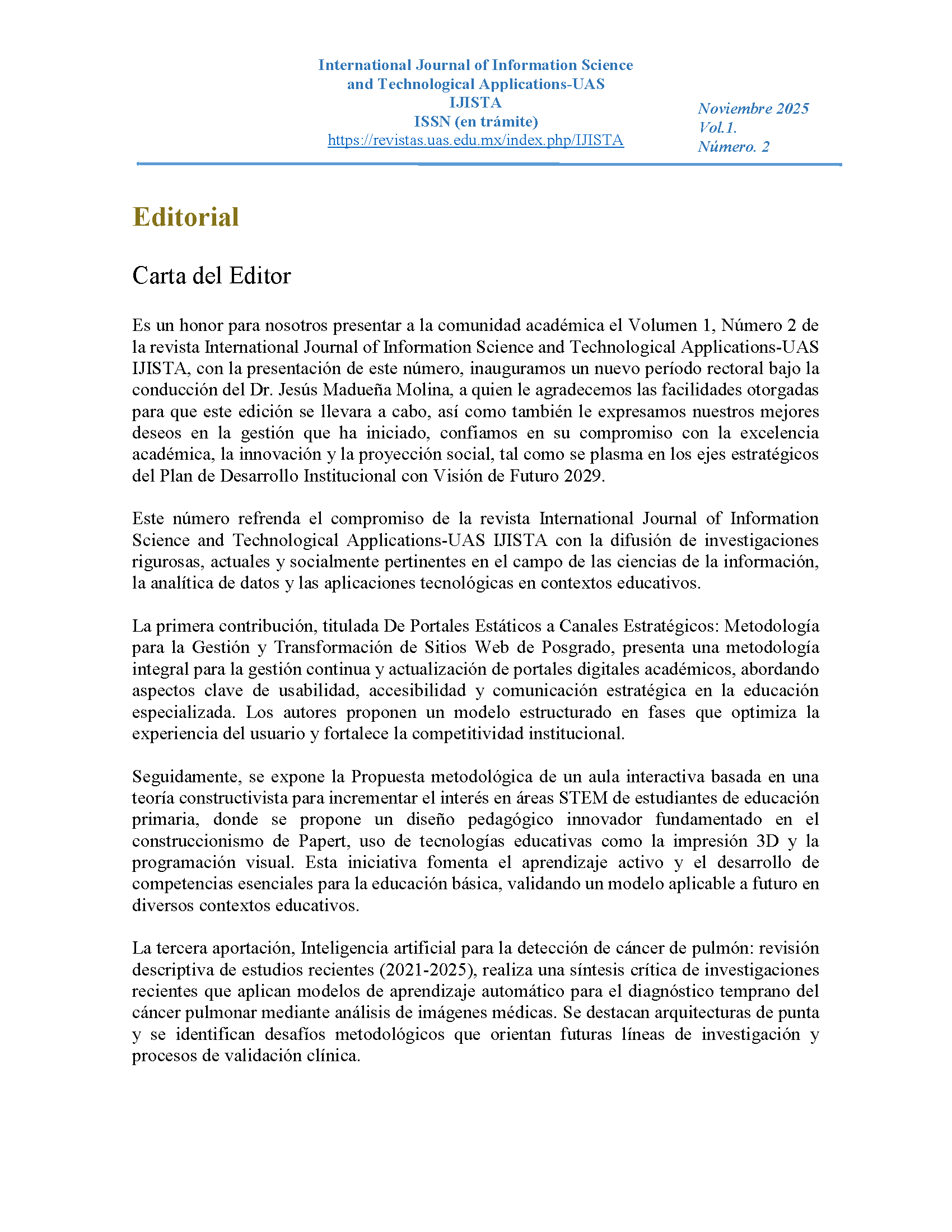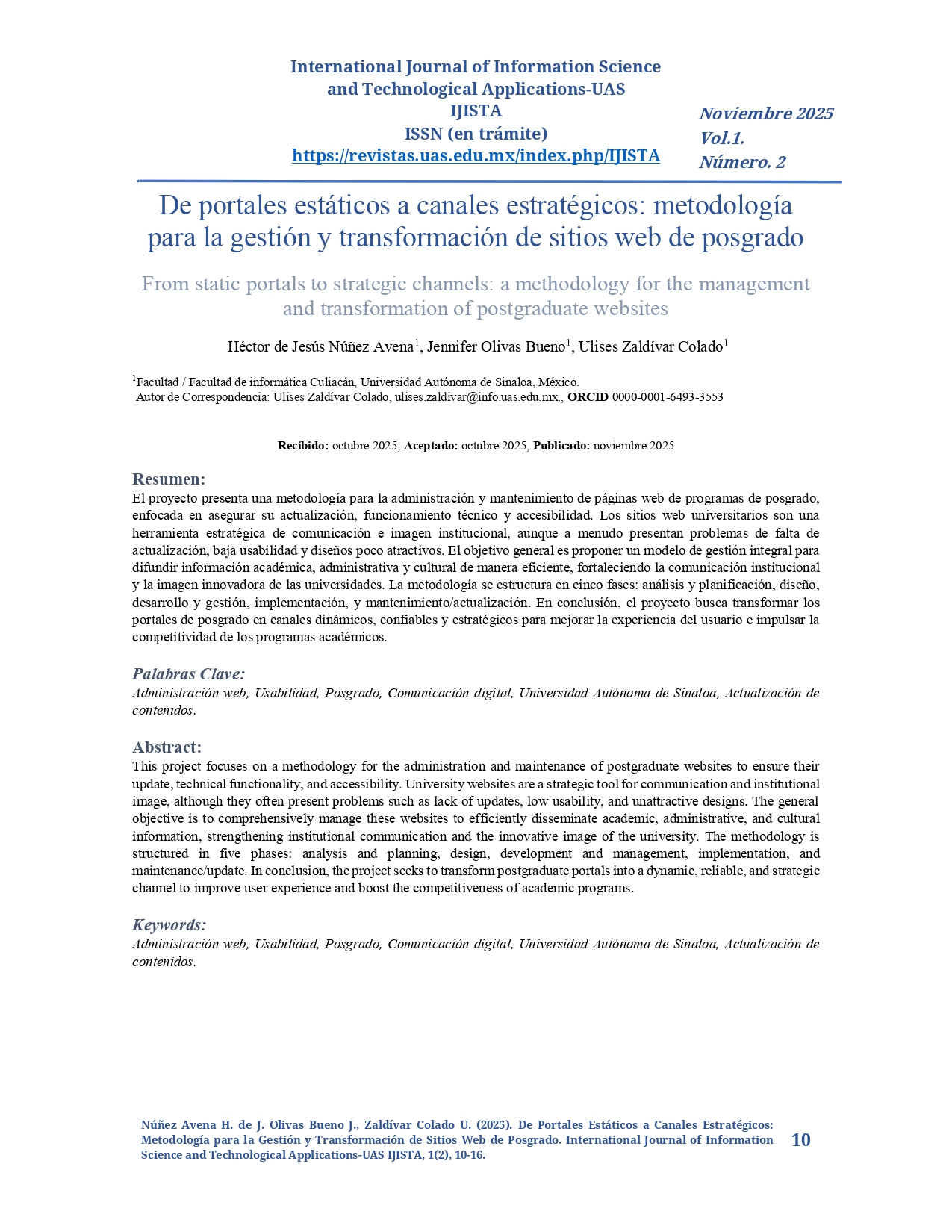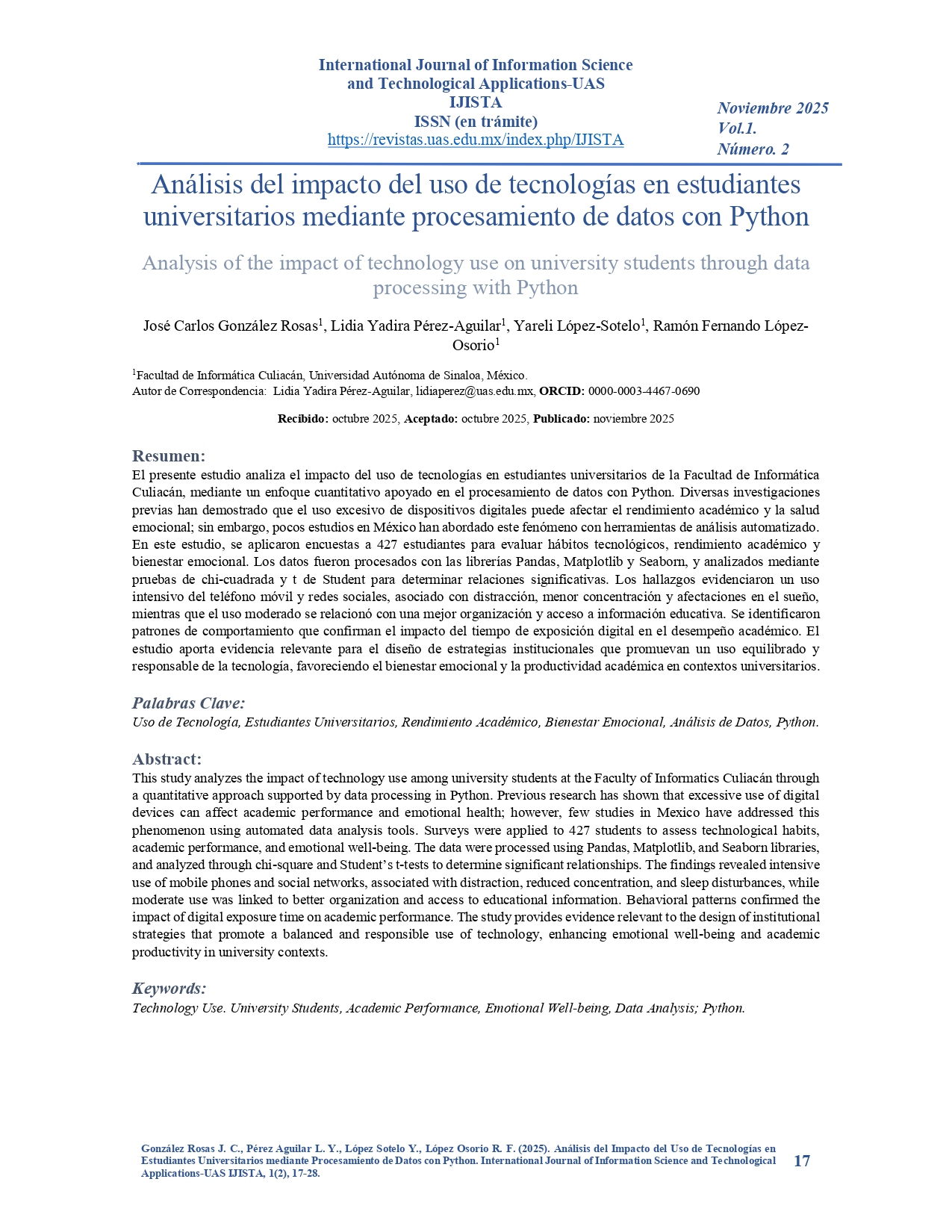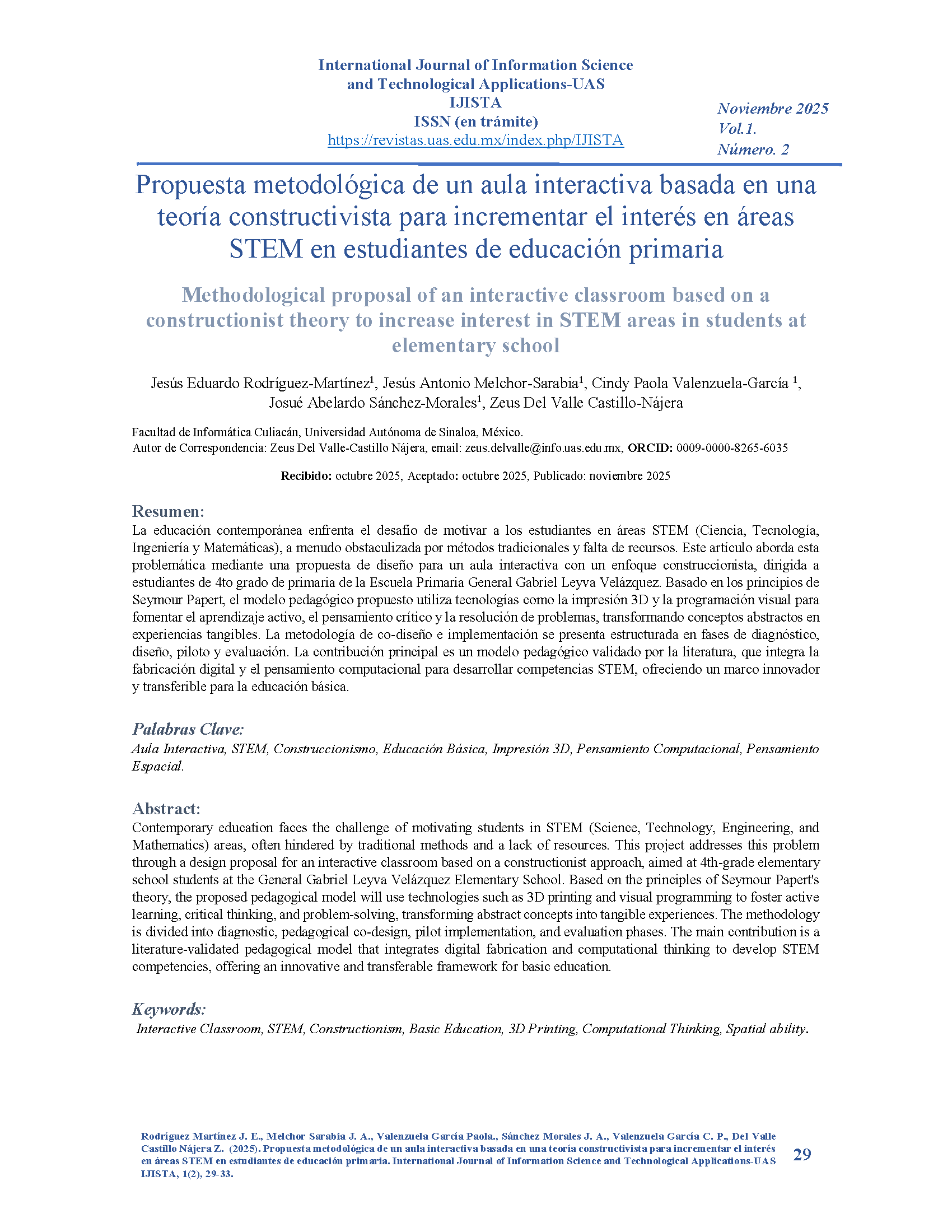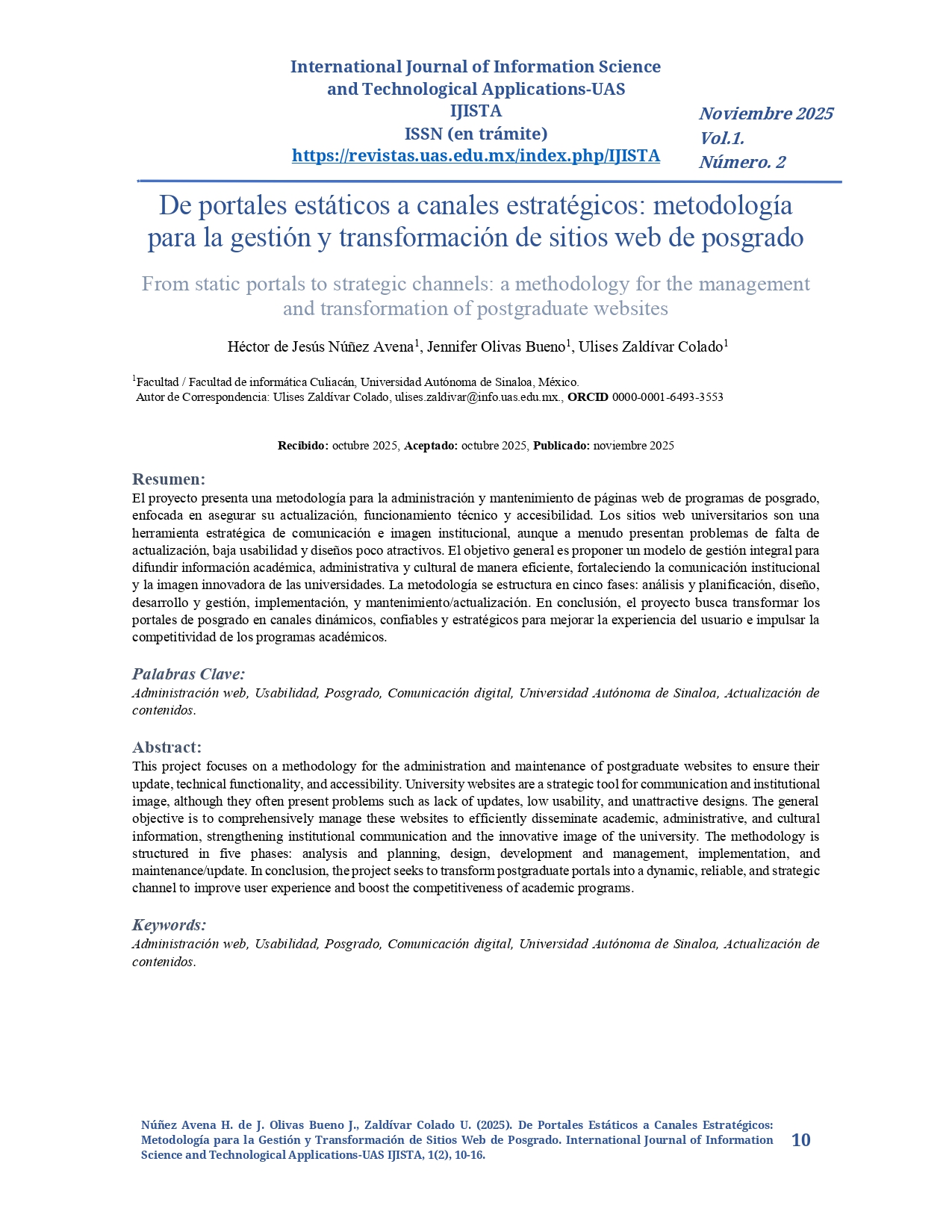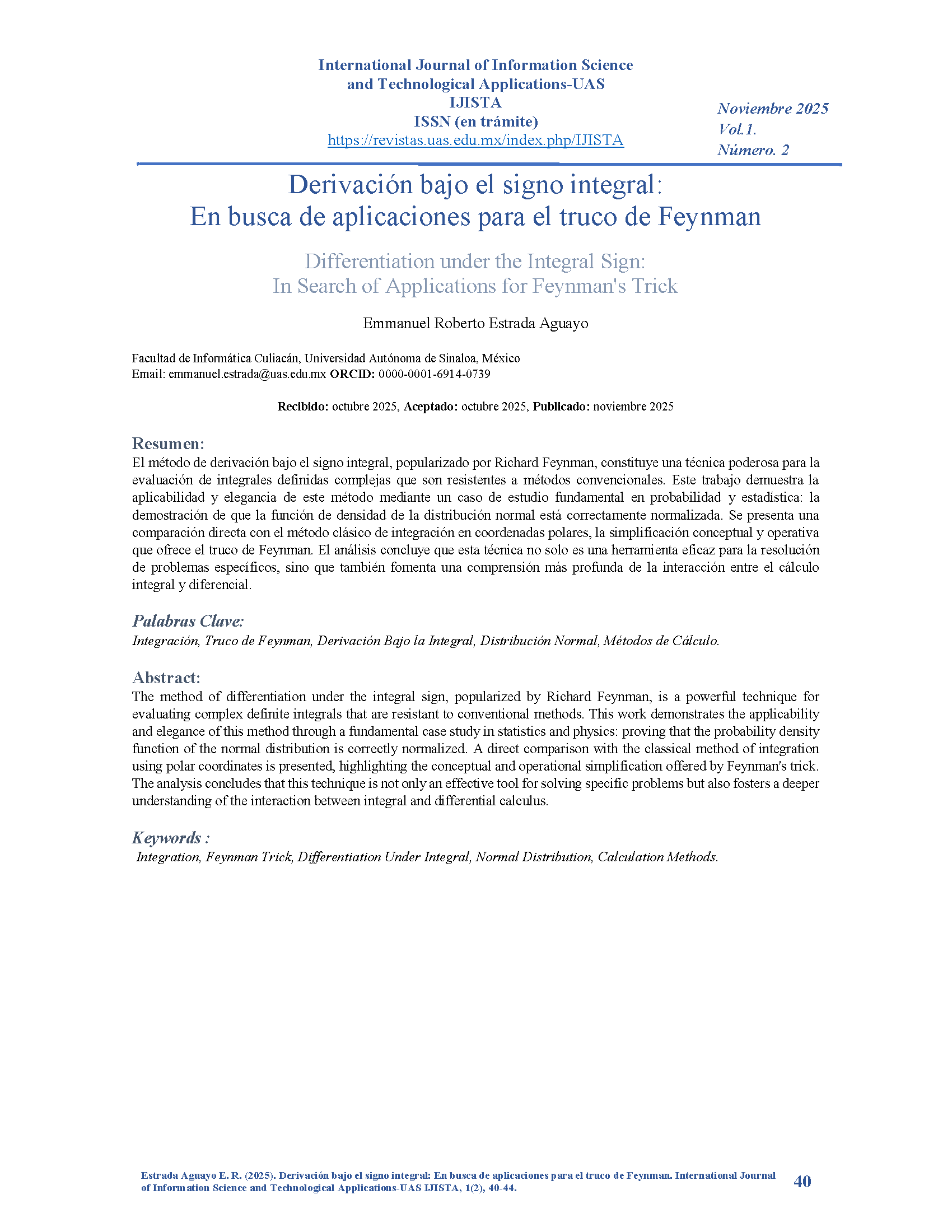About the Journal
Edition: Facultad de Informática Culiacán
Editor in chief: Xiomara Penélope Zaldívar Colado, PhD.
Description: Scientific Journal with original articles publication
Objective: To disseminate nationally and internationally the advances in science and technology in the area of computer science
Periodicity: Biannual
Country: Mexico
Approach: Fostering collaboration in a collegial manner between students, researchers and professionals from different areas of knowledge.
Review criteria: IJISTA is a double-blind, open access, peer-reviewed journal. There is no cost to authors for the publication of articles.
The languages allowed to receive articles are English and Spanish
Mode: Open Access
Exclusive use rights: in process
e-ISSN: in process
Publication format: PDF y HTML
Indexed: Google Scholar
The International Journal of Information Science and Technological Applications-UAS IJISTA, is an international scientific journal, published semiannually, peer-reviewed with a solid academic background, which is published in May and November, the objective is to present scientific and technological advances of relevance at national and international level, it is multidisciplinary, covering the broad field of Information Sciences and Technological Applications, with areas of interest such as Artificial Intelligence, Robotics, Virtual Reality, Databases, Software Engineering, Large-scale data analysis, Information and Communication Technologies based on applications, Knowledge Management and Technology, Distributed and Cloud Computing, Modeling and Simulation, Bioinformatics, Medical Informatics, Research Methods in Computing, Case Studies and Applications, among others.
It is a magazine published by the Universidad Autónoma de Sinaloa through the Facultad de Informática Culiacán.
Current Issue
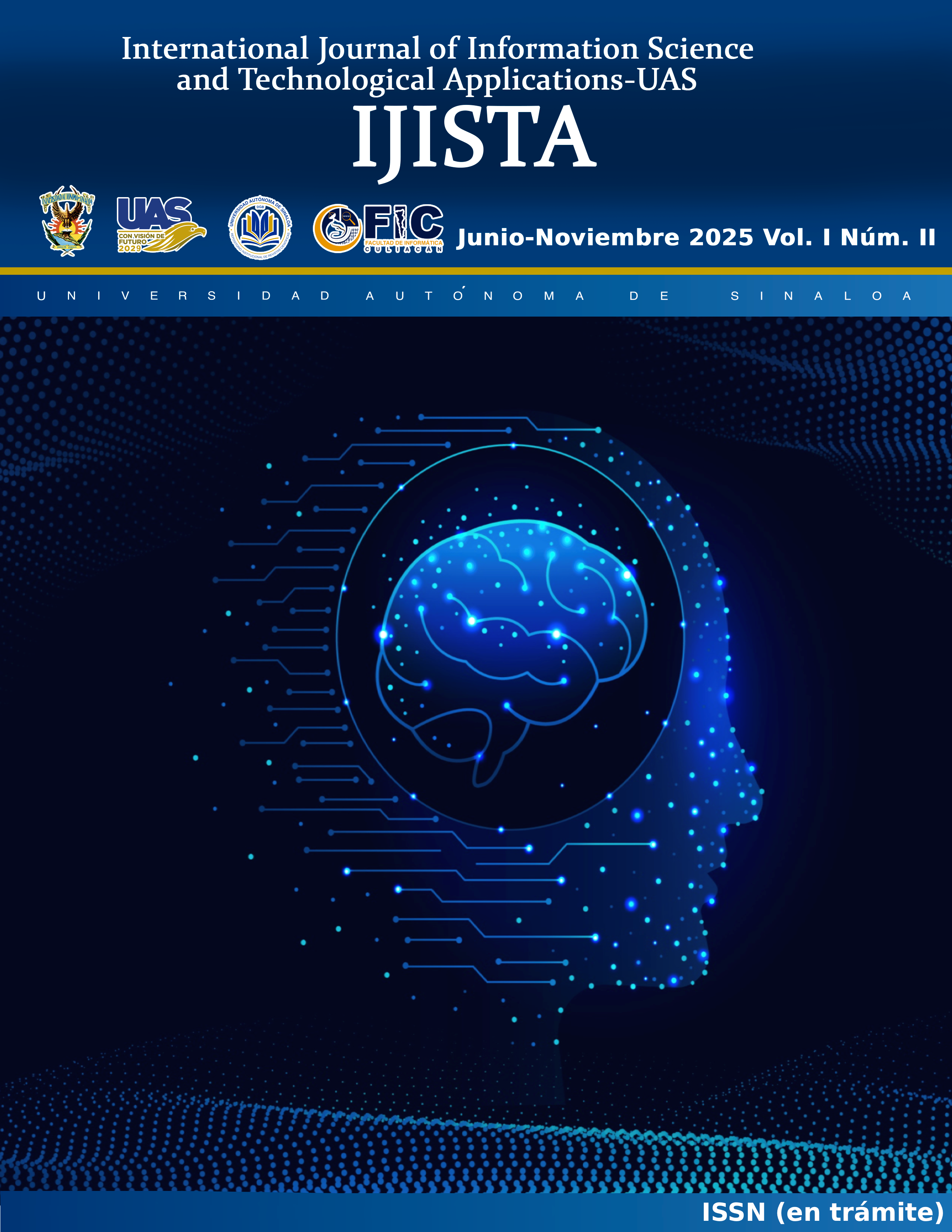
It is an honor for us to present to the academic community the Volume 1, Number 2 of the International Journal of Information Science and Technological Applications-UAS IJISTA. With the publication of this issue, we inaugurate a new rectoral term under the leadership of Dr. Jesús Madueña Molina, to whom we sincerely thank for the support provided in making this edition possible. We also extend our best wishes for success in his new role and trust in his commitment to academic excellence, innovation, and social outreach, as outlined in the strategic pillars of the Institutional Development Plan with a Vision for the Future 2029.
This issue reinforces the commitment of the International Journal of Information Science and Technological Applications-UAS IJISTA with the dissemination of rigorous, current, and socially relevant research in the fields of information science, data analytics, and technological applications in educational contexts.
This edition includes five significant and contemporary contributions in the fields of information science and technological applications. These studies reflect the breadth and thematic quality of our publication, addressing digital management, STEM education, the application of artificial intelligence in medicine, advanced mathematical methods, and the analysis of the impact of technology use on university students.
Full Issue
Editorial
Artículos
Important dates
- Article Submission Deadline:
October 24, 2025 November 03, 2025
- Article Review Period: October 01 – November 07, 2025
- Feedback on Accepted/Rejected Articles: October 15 - November 10, 2025.
- Acceptance/Rejection Letter Issuance: November 21, 2025
- Publication of Articles in Electronic Journal: November 28, 2025

